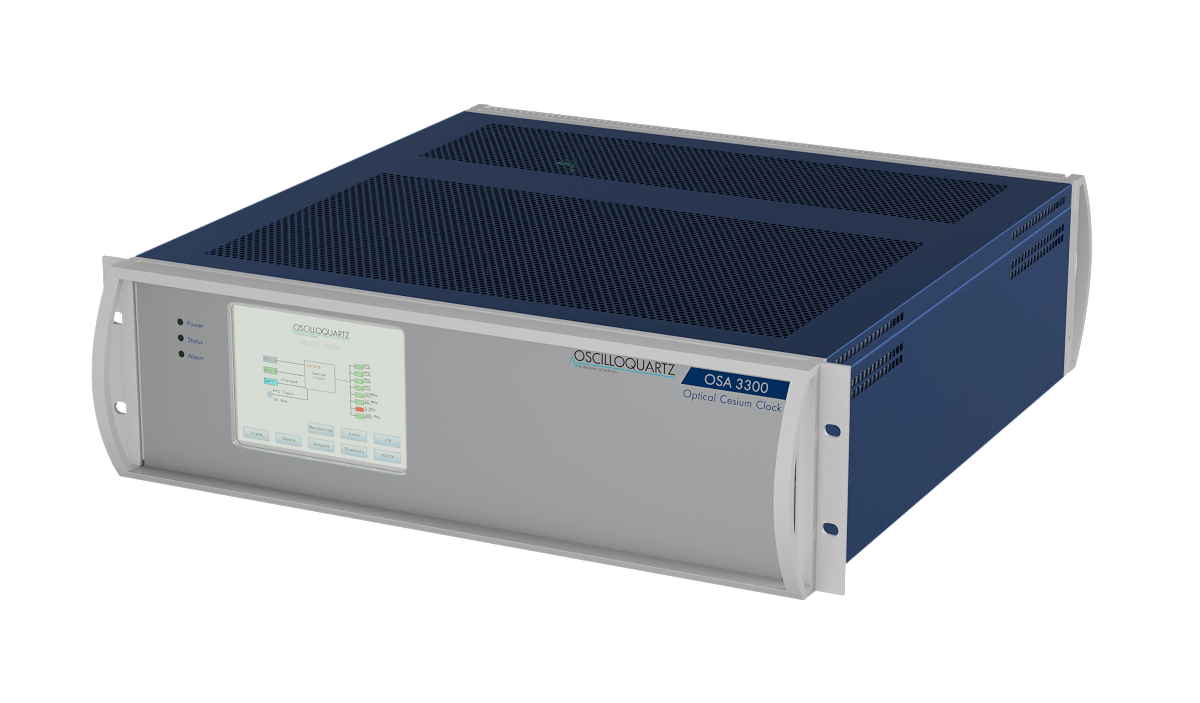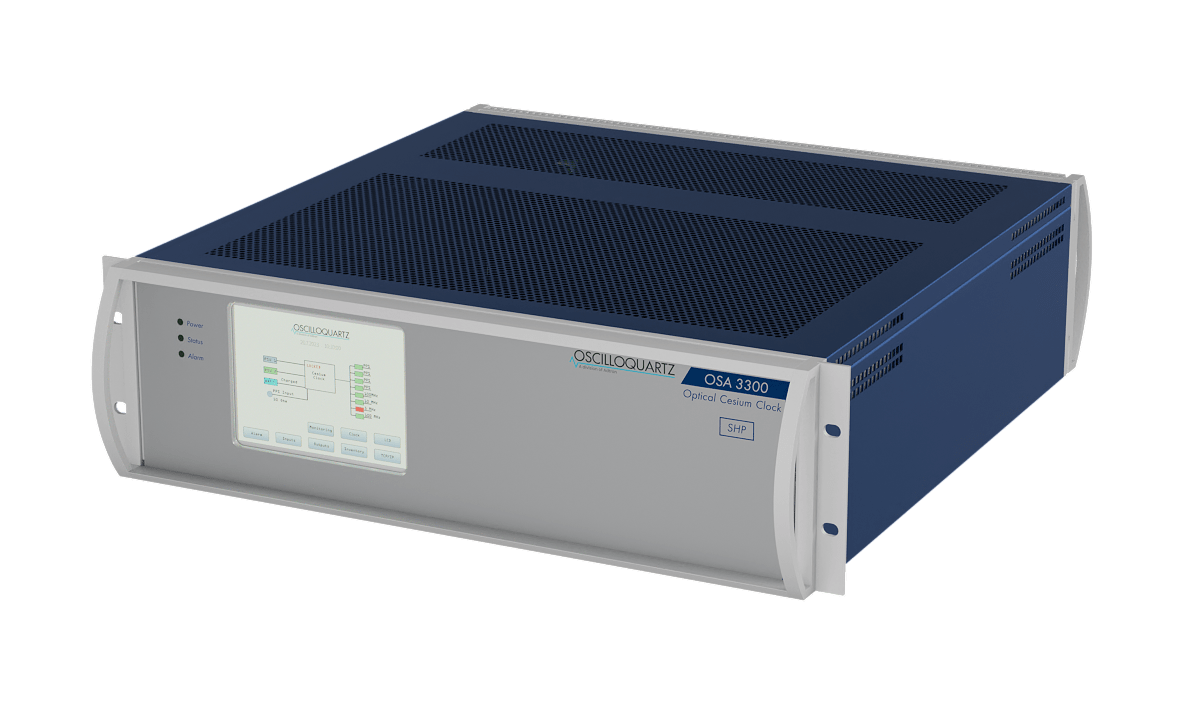OSA 3300 Series
The industry’s first high-performance optical cesium clocks
Scientific research and space exploration are examples of fields that increasingly demand more precise and stable timing and synchronization sources. With magnetic cesium approaching the limits of its capabilities, we created our OSA 3300 High-Performance (OSA 3300 HP) and OSA 3300 Super High-Performance (OSA 3300 SHP) optical cesium clocks. With their unique optical pumping technology, they remain functional over a significantly longer lifetime. What’s more, with the addition of our Enhanced Short-Term Unit (ESTU) precision timing module, they deliver even greater synchronization accuracy and reliability – critical for applications in metrology, space exploration and defense. By improving short-term frequency stability to levels comparable with passive hydrogen masers, the ESTU module ensures more precise data collection, satellite communication and measurement operations.
OSA 3300 HP
Our OSA 3300 HP sets performance benchmarks that far surpass those of best-in-class magnetic cesium clocks. Leveraging our optical pumping technology, the device provides an ultra-stable frequency source, delivering unparalleled timing accuracy. The OSA 3300 HP can also be combined with our grandmaster clocks to create a market-leading enhanced primary reference time clock (ePRTC) that meets the requirements of demanding applications and satisfies the most stringent timing and synchronization standards.

OSA 3300 SHP
Our OSA 3300 SHP offers better holdover performance than detailed in the ITU-T ePRTC G.8272 specification, making it ideal for use in metrology labs and other applications that demand supreme levels of precision and reliability. Featuring the same user-friendly GUI as the 3300-HP, devices are optimized for ease of use, minimizing the need for extensive training. With its 10-year lifespan and ability to seamlessly integrate into existing timing networks, our OSA 3300 SHP is the ultimate choice for ensuring accuracy and reliability while reducing dependence on GNSS.

Related resources

